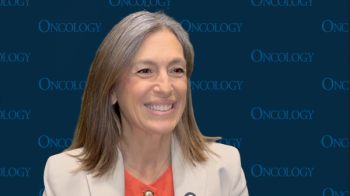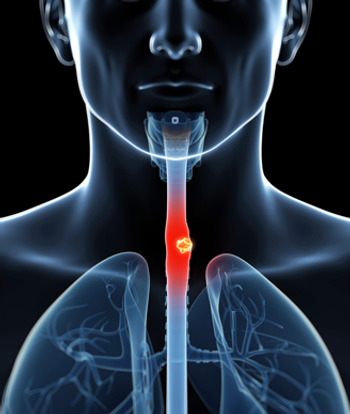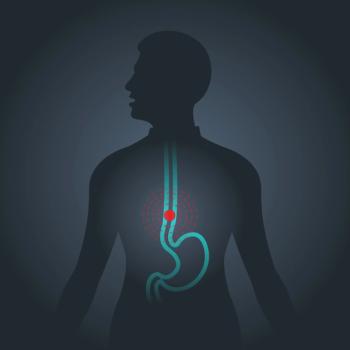
MUNICON-II: Early FDG-PET Scan Predicts Esophageal Ca Response to Therapy
Esophageal cancer generally has a poor prognosis; while preoperative chemotherapy is recommended, tumors often do not respond to treatment.
Esophageal cancer generally has a poor prognosis; while preoperative chemotherapy is recommended, tumors often do not respond to treatment. In MUNICON-II, a small prospective study reported at the 2011 Gastrointestinal Cancers Symposium in San Francisco, California, results of 18FDG-PET (positron emission tomography with radiolabeled fluorodeoxyglucose) scans taken at baseline and after 2 weeks of chemotherapy were predictive of the ultimate response to neoadjuvant chemotherapy in patients with locally advanced adenocarcinoma of the esophagogastric junction. The findings help oncologists to identify nonresponders and enable these patients to avoid the toxicities of therapy that is unlikely to be of benefit.
Lead investigator Florian Lordick, MD, PhD, Director of the Department of Hematology and Oncology at Klinikum Braunschweig in Brunswick, Germany, presented the findings (Lordick et al, abstract 3). In this 56-patient study (median age, 62 years; 91% male), PET nonresponse was defined as a decrease of the tumor FDG standard uptake value < 35%. FDG-PET scans in 33 patients showed that tumor glucose uptake (tied with metabolic activity of the tumors) decreased ≥ 35% compared with baseline, indicating that their tumors were responding to chemotherapy.
These responders continued on their platin/5-FU-based neoadjuvant chemotherapy for 3 months, then had surgery. In an attempt to improve the treatment outcome for the 23 patients identified by FDG-PET as nonresponders, these patients received salvage preoperative chemoradiation consisting of external beam radiation at 32 Gy (1.6 Gy/fraction, twice daily) plus daily cisplatin at 6 mg/m² before proceeding to surgery.
Resection was performed on 54 of the 56 patients. Complete tumor resection with negative margins was achieved in 27 of the 33 responders (82%) and 16 of the 23 nonresponders (70%; P = .51). The investigators observed major histologic remissions (< 10% residual tumor) in 12 PET responders (36%) and 6 PET nonresponders (26%). After a median follow-up time of 38 months, the median event-free survival (EFS) and the median overall survival (OS) were not yet reached in the PET responders. In the PET nonresponders, median EFS was 15.4 months and OS was 18.3 months.
The investigators concluded that “this study confirms the prognostic value of early metabolic response evaluation during neoadjuvant chemotherapy.” Despite the histopathologic responses seen after salvage chemoradiation in nonresponders, they said, “the clinical outcome of early PET nonresponders to chemotherapy remains poor, indicating a dismal tumor biology in this group of patients.” Future trials will test different chemotherapy regimens and novel biologic agents in nonresponders, and the European Organisation for Research and Treatment in Cancer (EORTC) plans to use early PET assessment to explore alternative treatment approaches for nonresponders, Dr. Lordick said.
The 2011 Gastrointestinal Cancers Symposium is a collaborative meeting cosponsored by the American Gastroenterological Association Institute, ASCO, ASTRO, and SSO.
Newsletter
Stay up to date on recent advances in the multidisciplinary approach to cancer.



































